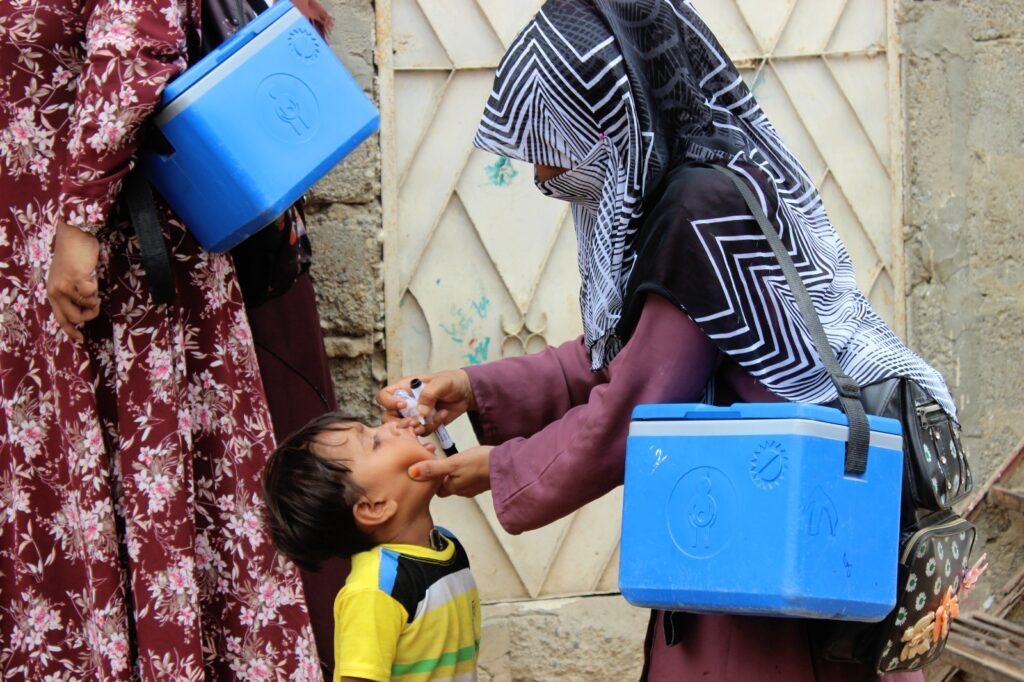Health catastrophe raises alarm as nationwide vaccination efforts ramp up in bid to protect children; of the 24 cases in 2024, a staggering 15 have emerged from Balochistan and five from Sindh

By Asghar Ali Mubarak
ISLAMABAD: Pakistan’s battle against polio has entered a critical phase with the country reporting its 24th case this year, as the poliovirus tightens its grip on vulnerable communities. The latest case, a 29-month-old boy from Hyderabad in Sindh, underscores the growing urgency of the situation. Health officials, in their Friday notification, confirmed this marks the second incident of polio in the district, following an earlier case reported in August.
The wider picture, however, paints a far more distressing scenario. Of the 24 cases in 2024, a staggering 15 have emerged from Balochistan, with Sindh reporting five, Khyber Pakhtunkhwa two, and isolated incidents in Punjab and Islamabad. Such figures underscore the challenge for the country’s polio eradication efforts, as the virus continues to exploit vulnerable populations amidst fluctuating immunisation rates and lingering socio-economic hurdles.
READ MORE: Can PM alone eradicate polio?
In a public plea that resonates across the spectrum, Ayesha Raza Farooq, the Prime Minister’s Focal Person for Polio Eradication, expressed her deep concern at the ongoing rise in paralytic polio cases. Her message to parents and communities was unequivocal: they must take immediate action to safeguard their children. “Polio is an unforgiving disease. It has no cure but is entirely preventable through vaccines, which we are working tirelessly to provide at the doorstep of every family,” she stated.
Her appeal was both personal and universal: “We carry a moral and religious responsibility to protect our children. Ensuring that every child receives polio vaccinations is not just an option—it is an obligation.” The scale of the crisis is compounded by the indiscriminate nature of the virus, as Ayesha Farooq underscored: “Poliovirus does not discriminate. It seeks out any vulnerable child it can find. The only way we can stop this virus in its tracks is by ensuring that every child receives their routine immunisations and every available dose of the polio vaccine.”
READ MORE: Polio in Sindh: Policy & leadership?
Pakistan’s Polio Programme has responded by launching an ambitious roadmap aimed at halting the virus’s transmission by mid-2025. Crafted in collaboration with provincial authorities, the strategy is focused on reaching every child, particularly in high-risk areas. It also seeks to close operational gaps, build community trust through communication, and integrate health services with the polio campaign. One significant component of the plan is mapping and vaccinating mobile and migrant populations, who often fall through the cracks of public health efforts.
The efforts are far from theoretical. A national polio campaign, conducted in September, saw 33 million children under five vaccinated across 115 districts. Two more mass vaccination efforts are planned before the year’s end, targeting the most at-risk children to boost their immunity against the virus. Muhammad Anwarul Haq, the Coordinator of the National Emergency Operations Centre for Polio Eradication, highlighted the pivotal role of parents and communities in the fight against this preventable disease.
READ MORE: What harms polio program?
“Our polio workers represent hope. They bring the vaccine directly to your homes in a bid to secure a healthier future for our children. It is essential that communities embrace these frontline heroes and ensure every child is vaccinated,” Haq stressed, calling on the nation to support the eradication efforts. Despite these monumental efforts, challenges remain. Public health workers continue to face resistance from some communities, often rooted in misinformation or fear, which complicates the delivery of vaccines in certain regions.
However, the government and health agencies are committed to overcoming these hurdles through open dialogue and transparency, knowing that the future health of millions of children hangs in the balance. As the nation edges closer to a critical juncture in its fight against polio, it becomes increasingly clear that success will not only require continued governmental intervention but also the collective will of parents, communities, and frontline health workers.



